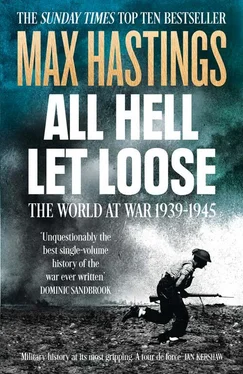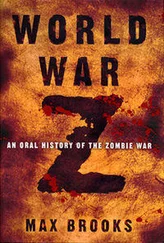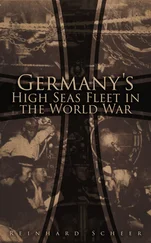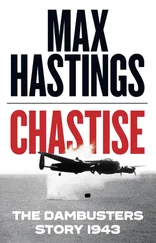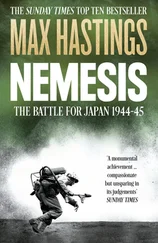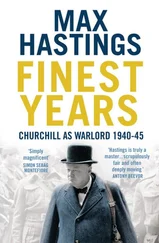One and a half million British women and children, evacuated from the cities amid the threat of German bombing, suffered agonies of homesickness in an unfamiliar rural environment. One of them, Derek Lambert, a nine-year-old from London’s Muswell Hill, later recalled: ‘We went to strange beds and lay with fists clenched. Our toes found tepid hot water bottles and our fingers silk bags of old lavender inside the pillows. An owl hooted, wings brushed the window. I remembered the London sounds of distant trains and motor cycles, the breaking limbs of the mountain ash, next door’s dog, the droning radio, the fifth stair groaning and the ten-thirty throat-clearing; I remembered the familiar wallpaper where you could paddle a canoe through green rapids or drive a train along sweeping cuttings…We sobbed in awful desolation.’
Most evacuees were drawn from the underclass, and shocked rustic hosts by their rags and anarchic habits: urban children, victims of the thirties Depression, were unaccustomed to meals at fixed hours, some even to knives and forks. They were used to subsisting on ‘pieces’ – bread and margarine, fish and chips – eaten on the move, together with tinned food and sweets. They recoiled from soup, puddings and all vegetables save potatoes. Many paraded their alienation by resorting to petty delinquency. The habits of their mothers dismayed staid rural communities: ‘The village people objected to the evacuees chiefly because of the dirtiness of their habits and clothes,’ recorded Muriel Green, a garage assistant in Snettisham, Norfolk. ‘Also because of their reputed drinking and bad language. It’s exceptional to hear women swear in this village or for them to enter a public house. The villagers used to watch them come out of the pubs with horror. The holiday camp proprietor said: “You should see them mop down the drink.”’ By Christmas, with Britain still unbombed, most of the evacuees had returned to their city homes, to the mutual relief of themselves and their rural hosts.
If there was little substance to Britain’s war effort, there were many symbols: sandbagged public buildings, barrage balloons floating above London, a rigorous blackout in the hours of darkness. Before peace came, accidents in the blackout killed more people than did the Luftwaffe: in the last four months of 1939 there were 4,133 deaths on the roads, 2,657 of these pedestrians, a figure almost double that for the same period in 1938. Many more people died as a consequence of non-highway mishaps: some 18 per cent of those interviewed by Princeton pollsters in December 1940 said they had injured themselves groping in the dark; three-quarters of respondents thought air-raid precautions should be eased. Defence regulations were so stringently enforced that two soldiers leaving the dock at the Old Bailey after being condemned to death for murder were rebuked for failing to pick up their gas masks. Two and a half million people were enrolled in civil defence.
Huge tracts of downland and urban public spaces were put down to corn and vegetables. Wiltshire farmer Arthur Street ploughed up his grassland as the government ordered, and sent away his beloved hunter to be trained for harness work. Many riding horses took badly to this humble duty, but Street’s ‘Jorrocks’ ‘trotted home like a gentleman’, in the farmer’s words, ‘and since that day he has hauled the milk, pulled the broadcast during wheat sowing, and done ploughing and all sorts of jobs with no mishap…What he thinks about it I don’t know. He has no notion of what it is that trundles and rattles behind him, and the position of his ears shows that he is somewhat worried about it. But as we have never let him down before, he reckons that we are not doing it now, and so does his war work like the gentleman he is.’ Farmers who had struggled to escape bankruptcy in the 1930s suddenly entered a new era of prosperity.
Seven hundred fascists were interned, though most of the aristocrats who had flirted with Hitler were spared. ‘It certainly is breath-taking how all these lords get away with their pre-war affiliations to the Nazi regime,’ complained British communist Elizabeth Belsey in a letter to her soldier husband. If the British had emulated French policy towards communists, thousands of trades unionists and a substantial part of the intellectual class would also have been incarcerated, but these too were left at liberty. There was still much silliness in the air: the Royal Victoria Hotel at St Leonardson-Sea, advertising its attractions in The Times, asserted that ‘The ballroom and adjacent toilets have been made gas-and splinter-proof.’ Published advertisements for domestic staff made few concessions to conscription: ‘Wanted: second housemaid of three; wages £42 per annum; two ladies in family; nine servants kept.’ The Archbishop of Canterbury declared that Christians were allowed to pray for victory, but the Archbishop of York disagreed. While the war was a righteous one, he said, it was not a holy one: ‘We must avoid praying each other down.’ Some clergymen urged their congregations to ask the Almighty’s help for charity: ‘Save me from bitterness and hatred towards the enemy.’ There was anger among British Christians, however, when in November the Pope sent a message of congratulation to Hitler on escaping an assassination attempt.
Hundreds of thousands of young men trained in England with inadequate equipment and uncertain expectations, though they assumed some of their number would die. Lt. Arthur Kellas of the Border Regiment took for granted his own survival, but speculated about the fates of his fellow officers: ‘I used to wonder which of them were for the killing. Would it be Ogilvy, such a nice little man, so worried about his mother in Dundee? Or Donald, so handsome, confident and pleased with himself? Or Hunt, newly married, prosperous in the City of London? Germain? Dunbar? Perkins, whom we ragged without pity? Or Bell, of whom we were jealous when he was posted off to glory with the first battalion in the line in France, first of us to be promoted to the First Fifteen, leaving behind such a pretty sister in Whitehaven? It had happened to our fathers after all. Presumably our War would be much the same as theirs.’
They were so young. As eighteen-year-old Territorial soldier Doug Arthur paraded with his unit outside a church in Liverpool shortly before embarking for overseas service, he was embarrassed to be picked out by one of an emotional crowd of watching housewives: ‘Look at ’im, girls,’ she said pityingly. ‘’E should be at ’ome wit’ ’is Mam. Never mind, son, yourse’ll be alrigh’. God Bless yer la’. He’ll look after yourtse, yer know, like. That bastard ’itler ’as gorra lot to answer for. I’d like to get me bleedin’ ’ands on ’im for five bleedin’ minutes, the swine.’
US president Franklin Roosevelt wrote to his London ambassador Joseph Kennedy on 30 October 1939: ‘While the [First] World War did not bring forth strong leadership in Great Britain, this war may do so, because I am inclined to think the British public has more humility than before and is slowly but surely getting rid of the “muddle through” attitude of the past.’ FDR’s optimism would ultimately prove justified, but only after many more months of ‘muddle through’.
The next act of the struggle increased the world’s bewilderment and confusion of loyalties, for it was undertaken not by Hitler, but by Stalin. Like all Europe’s tyrants, Russia’s leader assessed the evolving conflict in terms of the opportunities it offered him for aggrandisement. In the autumn of 1939, having secured eastern Poland, he sought further to enhance the Soviet Union’s strategic position by advancing into Finland. The country, a vast, sparsely inhabited wilderness of lakes and forests, was one among many whose frontier, indeed very existence, was of short duration, and thus vulnerable to challenge. Part of Sweden until the Napoleonic Wars, thereafter it was ruled by Russia until 1918, when Finnish anti-Bolsheviks triumphed in a civil war.
Читать дальше
